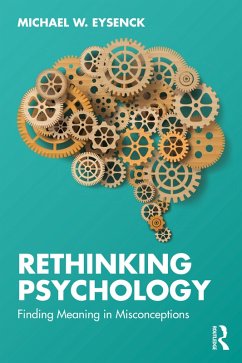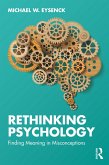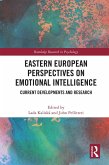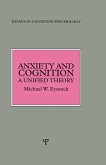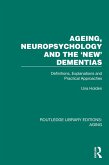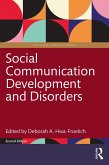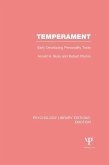42,95 €
42,95 €
inkl. MwSt.
Erscheint vor. 07.05.25

21 °P sammeln
42,95 €
Als Download kaufen

42,95 €
inkl. MwSt.
Erscheint vor. 07.05.25

21 °P sammeln
Jetzt verschenken
Alle Infos zum eBook verschenken
42,95 €
inkl. MwSt.
Erscheint vor. 07.05.25
Alle Infos zum eBook verschenken

21 °P sammeln
Unser Service für Vorbesteller - Ihr Vorteil ohne Risiko:
Sollten wir den Preis dieses Artikels vor dem Erscheinungsdatum senken, werden wir Ihnen den Artikel bei der Auslieferung automatisch zum günstigeren Preis berechnen.
Sollten wir den Preis dieses Artikels vor dem Erscheinungsdatum senken, werden wir Ihnen den Artikel bei der Auslieferung automatisch zum günstigeren Preis berechnen.
- Format: PDF
- Merkliste
- Auf die Merkliste
- Bewerten Bewerten
- Teilen
- Produkt teilen
- Produkterinnerung
- Produkterinnerung

Bitte loggen Sie sich zunächst in Ihr Kundenkonto ein oder registrieren Sie sich bei
bücher.de, um das eBook-Abo tolino select nutzen zu können.
Hier können Sie sich einloggen
Hier können Sie sich einloggen
Sie sind bereits eingeloggt. Klicken Sie auf 2. tolino select Abo, um fortzufahren.

Bitte loggen Sie sich zunächst in Ihr Kundenkonto ein oder registrieren Sie sich bei bücher.de, um das eBook-Abo tolino select nutzen zu können.
In this thought-provoking exploration of 44 of the most common psychological myths, Mike Eysenck examines the complexity of psychological science as well as the distortion of data, not only through the media, but also by researchers, textbook writers, and individuals themselves.
- Geräte: PC
- mit Kopierschutz
- eBook Hilfe
- Größe: 3.11MB
Andere Kunden interessierten sich auch für
![Rethinking Psychology (eBook, ePUB) Rethinking Psychology (eBook, ePUB)]() Michael W. EysenckRethinking Psychology (eBook, ePUB)42,95 €
Michael W. EysenckRethinking Psychology (eBook, ePUB)42,95 €![Eastern European Perspectives on Emotional Intelligence (eBook, PDF) Eastern European Perspectives on Emotional Intelligence (eBook, PDF)]() Eastern European Perspectives on Emotional Intelligence (eBook, PDF)42,95 €
Eastern European Perspectives on Emotional Intelligence (eBook, PDF)42,95 €![Anxiety and Cognition (eBook, PDF) Anxiety and Cognition (eBook, PDF)]() Michael EysenckAnxiety and Cognition (eBook, PDF)53,95 €
Michael EysenckAnxiety and Cognition (eBook, PDF)53,95 €![Ageing, Neuropsychology and the 'New' Dementias (eBook, PDF) Ageing, Neuropsychology and the 'New' Dementias (eBook, PDF)]() Una HoldenAgeing, Neuropsychology and the 'New' Dementias (eBook, PDF)52,95 €
Una HoldenAgeing, Neuropsychology and the 'New' Dementias (eBook, PDF)52,95 €![Social Communication Development and Disorders (eBook, PDF) Social Communication Development and Disorders (eBook, PDF)]() Social Communication Development and Disorders (eBook, PDF)50,95 €
Social Communication Development and Disorders (eBook, PDF)50,95 €![Temperament (eBook, PDF) Temperament (eBook, PDF)]() Arnold H. BussTemperament (eBook, PDF)53,95 €
Arnold H. BussTemperament (eBook, PDF)53,95 €![Coping with Covid (eBook, PDF) Coping with Covid (eBook, PDF)]() Coping with Covid (eBook, PDF)54,95 €
Coping with Covid (eBook, PDF)54,95 €-
-
-
In this thought-provoking exploration of 44 of the most common psychological myths, Mike Eysenck examines the complexity of psychological science as well as the distortion of data, not only through the media, but also by researchers, textbook writers, and individuals themselves.
Dieser Download kann aus rechtlichen Gründen nur mit Rechnungsadresse in A, B, BG, CY, CZ, D, DK, EW, E, FIN, F, GR, HR, H, IRL, I, LT, L, LR, M, NL, PL, P, R, S, SLO, SK ausgeliefert werden.
Produktdetails
- Produktdetails
- Verlag: Taylor & Francis eBooks
- Seitenzahl: 388
- Erscheinungstermin: 7. Mai 2025
- Englisch
- ISBN-13: 9781040338124
- Artikelnr.: 73418072
- Verlag: Taylor & Francis eBooks
- Seitenzahl: 388
- Erscheinungstermin: 7. Mai 2025
- Englisch
- ISBN-13: 9781040338124
- Artikelnr.: 73418072
- Herstellerkennzeichnung Die Herstellerinformationen sind derzeit nicht verfügbar.
Michael W. Eysenck graduated from University College London. He then moved immediately to Birkbeck University of London as a lecturer where he did his PhD on the von Restorff and 'release' memory effects. His research for several years focused on various aspects in memory (e.g., levels of processing; distinctiveness). Since then, his main focus has been on anxiety and cognition (including memory) in healthy populations and patients with anxiety disorders. Some of this research has focused on cognitive biases especially those affecting attentional and memory processes. Theoretically, he proposed his influential attentional control theory of anxiety in 2007 based on the assumption that anxious individuals' problems with cognitive processing often revolve around impaired attentional control. Most of this research and theorising was carried out at Royal Holloway University of London where he was Professor of Psychology between 1987 and 2009 (Head of Department, 1987-2005) and where since 2013 he has been a fellow. He continued this research during the period 2010-2020 at the University of Roehampton. He has published 67 books in psychology (many relating to human memory) including two research monographs on anxiety and cognition. He has been in Who's Who since 1989.
Preface
Chapter 1: Is psychology a science?
"Psychology is an inferior kind of science"
Reproducibility and the 'replication crisis'
Highly controlled experimental conditions
Clearly defined terminology
Predictability and testability: the 'theory crisis'
What should psychologists do?
Psychology is a different kind of science
Myths in psychology
Chapter 2: Visual perception
Myth: subliminal messages can motivate people's behaviour without their
awareness
Myth: we generally detect changes in objects
Myth: visual perception provides us with very rich and accurate information
about the environment at a glance
Myth: everyone agrees on the colour of a dress (or #theDress)
Myth: most people are 'face experts'
Why do we believe so many myths about visual perception?
Chapter 3: Mysteries of memory
Myth: "Memory is like a video camera"
Myth: memories do not change over time: they are permanent
Myth: repression and 'return of the repressed' are very common
Myth: amnesic patients have forgotten their pasts
Myth: the only function of (episodic) memory is to provide access to our
past experiences
Myth: forgetting is a bad thing
Chapter 4: Thinking and cognition
Myth: 10,000 hours of practice produce outstanding performance
Myth: brain training improves your brain functioning and intelligence
Myth: we only use 10% of our brains
Myth: Artificial Intelligence (AI) will soon be much more intelligent than
humans
Myth: nudges are very effective at changing people's behaviour
Chapter 5: Intelligence
Myth: there are multiple intelligences in the human mind
Myth: it is important to match teaching methods to learning styles
Myth: emotional intelligence is helpful in life
Myth: IQ scores only measure how good someone is at taking intelligence
tests
Myth: intelligence does not depend on genetic factors
Chapter 6: Personality
Myth: high self-esteem is highly desirable (and low self-esteem very
undesirable)
Myth: situational factors overwhelm personality when predicting behaviour
Myth: personality measures do not predict consequential outcomes (like
health, wealth and divorce) well enough to be useful
Myth: parenting practices are a major source of personality differences
Myth: men are from Mars, women are from Venus (men and women have
dramatically different personalities)
Chapter 7: Social psychology
Myth: Milgram proved that most people will obey immoral orders
Myth: crowds typically panic in threatening situations
Myth: Zimbardo proved that the power structure in prisons makes guards
aggressive and violent
Myth: individual differences in attitudes are mostly learned
Myth: happiness is influenced most strongly by what happens to us
Chapter 8: Mental disorders and their treatment
Myth: mental illnesses are due almost entirely to people's life experiences
Myth: psychiatric diagnoses or labels stigmatise people
Myth: The Rorschach Inkblot test is a very useful way of diagnosing most
mental illnesses
Myth: people with multiple personality disorder (dissociative identity
disorder) have more than one distinct personality
Myth: most psychotherapy requires lying on a couch and recalling one's
childhood
Myth: antidepressants are much more effective than psychotherapy for
treating depression
Chapter 9: Psychology and the law
Myth: an eyewitness's confidence is never a good predictor of their
identification accuracy
Myth: experts can nearly always identify the culprit from fingerprinting
evidence
Myth: DNA tests are almost infallible for identifying culprits
Myth: the polygraph test is very good at detecting lying
Myth: hypnosis enhances eyewitnesses' memory
Myth: Offender profiling is (very) useful in identifying culprits
Chapter 10: How to become a mythbuster
Why do people subscribe to myths?
Distorted research: biased experimental design, reporting and
interpretations of findings
Biased textbook coverage
Members of the public: confirmation bias or wishful thinking
Members of the public: deficient thinking about intrinsically improbable
beliefs
Members of the public: mistaken extrapolation from limited personal
experience
Members of the public: plausible beliefs based on general knowledge (kernel
of truth)
Conclusions
Chapter 11: Brave new world
Experiments: the gold standard?
Developing new methods
Experimenter bias
The jingle-jangle fallacies
Granularity problem
Scientific analysis: meta-analysis
Scientific reporting
Psychology as a cumulative science
Conclusions
References
Chapter 1: Is psychology a science?
"Psychology is an inferior kind of science"
Reproducibility and the 'replication crisis'
Highly controlled experimental conditions
Clearly defined terminology
Predictability and testability: the 'theory crisis'
What should psychologists do?
Psychology is a different kind of science
Myths in psychology
Chapter 2: Visual perception
Myth: subliminal messages can motivate people's behaviour without their
awareness
Myth: we generally detect changes in objects
Myth: visual perception provides us with very rich and accurate information
about the environment at a glance
Myth: everyone agrees on the colour of a dress (or #theDress)
Myth: most people are 'face experts'
Why do we believe so many myths about visual perception?
Chapter 3: Mysteries of memory
Myth: "Memory is like a video camera"
Myth: memories do not change over time: they are permanent
Myth: repression and 'return of the repressed' are very common
Myth: amnesic patients have forgotten their pasts
Myth: the only function of (episodic) memory is to provide access to our
past experiences
Myth: forgetting is a bad thing
Chapter 4: Thinking and cognition
Myth: 10,000 hours of practice produce outstanding performance
Myth: brain training improves your brain functioning and intelligence
Myth: we only use 10% of our brains
Myth: Artificial Intelligence (AI) will soon be much more intelligent than
humans
Myth: nudges are very effective at changing people's behaviour
Chapter 5: Intelligence
Myth: there are multiple intelligences in the human mind
Myth: it is important to match teaching methods to learning styles
Myth: emotional intelligence is helpful in life
Myth: IQ scores only measure how good someone is at taking intelligence
tests
Myth: intelligence does not depend on genetic factors
Chapter 6: Personality
Myth: high self-esteem is highly desirable (and low self-esteem very
undesirable)
Myth: situational factors overwhelm personality when predicting behaviour
Myth: personality measures do not predict consequential outcomes (like
health, wealth and divorce) well enough to be useful
Myth: parenting practices are a major source of personality differences
Myth: men are from Mars, women are from Venus (men and women have
dramatically different personalities)
Chapter 7: Social psychology
Myth: Milgram proved that most people will obey immoral orders
Myth: crowds typically panic in threatening situations
Myth: Zimbardo proved that the power structure in prisons makes guards
aggressive and violent
Myth: individual differences in attitudes are mostly learned
Myth: happiness is influenced most strongly by what happens to us
Chapter 8: Mental disorders and their treatment
Myth: mental illnesses are due almost entirely to people's life experiences
Myth: psychiatric diagnoses or labels stigmatise people
Myth: The Rorschach Inkblot test is a very useful way of diagnosing most
mental illnesses
Myth: people with multiple personality disorder (dissociative identity
disorder) have more than one distinct personality
Myth: most psychotherapy requires lying on a couch and recalling one's
childhood
Myth: antidepressants are much more effective than psychotherapy for
treating depression
Chapter 9: Psychology and the law
Myth: an eyewitness's confidence is never a good predictor of their
identification accuracy
Myth: experts can nearly always identify the culprit from fingerprinting
evidence
Myth: DNA tests are almost infallible for identifying culprits
Myth: the polygraph test is very good at detecting lying
Myth: hypnosis enhances eyewitnesses' memory
Myth: Offender profiling is (very) useful in identifying culprits
Chapter 10: How to become a mythbuster
Why do people subscribe to myths?
Distorted research: biased experimental design, reporting and
interpretations of findings
Biased textbook coverage
Members of the public: confirmation bias or wishful thinking
Members of the public: deficient thinking about intrinsically improbable
beliefs
Members of the public: mistaken extrapolation from limited personal
experience
Members of the public: plausible beliefs based on general knowledge (kernel
of truth)
Conclusions
Chapter 11: Brave new world
Experiments: the gold standard?
Developing new methods
Experimenter bias
The jingle-jangle fallacies
Granularity problem
Scientific analysis: meta-analysis
Scientific reporting
Psychology as a cumulative science
Conclusions
References
Preface
Chapter 1: Is psychology a science?
"Psychology is an inferior kind of science"
Reproducibility and the 'replication crisis'
Highly controlled experimental conditions
Clearly defined terminology
Predictability and testability: the 'theory crisis'
What should psychologists do?
Psychology is a different kind of science
Myths in psychology
Chapter 2: Visual perception
Myth: subliminal messages can motivate people's behaviour without their
awareness
Myth: we generally detect changes in objects
Myth: visual perception provides us with very rich and accurate information
about the environment at a glance
Myth: everyone agrees on the colour of a dress (or #theDress)
Myth: most people are 'face experts'
Why do we believe so many myths about visual perception?
Chapter 3: Mysteries of memory
Myth: "Memory is like a video camera"
Myth: memories do not change over time: they are permanent
Myth: repression and 'return of the repressed' are very common
Myth: amnesic patients have forgotten their pasts
Myth: the only function of (episodic) memory is to provide access to our
past experiences
Myth: forgetting is a bad thing
Chapter 4: Thinking and cognition
Myth: 10,000 hours of practice produce outstanding performance
Myth: brain training improves your brain functioning and intelligence
Myth: we only use 10% of our brains
Myth: Artificial Intelligence (AI) will soon be much more intelligent than
humans
Myth: nudges are very effective at changing people's behaviour
Chapter 5: Intelligence
Myth: there are multiple intelligences in the human mind
Myth: it is important to match teaching methods to learning styles
Myth: emotional intelligence is helpful in life
Myth: IQ scores only measure how good someone is at taking intelligence
tests
Myth: intelligence does not depend on genetic factors
Chapter 6: Personality
Myth: high self-esteem is highly desirable (and low self-esteem very
undesirable)
Myth: situational factors overwhelm personality when predicting behaviour
Myth: personality measures do not predict consequential outcomes (like
health, wealth and divorce) well enough to be useful
Myth: parenting practices are a major source of personality differences
Myth: men are from Mars, women are from Venus (men and women have
dramatically different personalities)
Chapter 7: Social psychology
Myth: Milgram proved that most people will obey immoral orders
Myth: crowds typically panic in threatening situations
Myth: Zimbardo proved that the power structure in prisons makes guards
aggressive and violent
Myth: individual differences in attitudes are mostly learned
Myth: happiness is influenced most strongly by what happens to us
Chapter 8: Mental disorders and their treatment
Myth: mental illnesses are due almost entirely to people's life experiences
Myth: psychiatric diagnoses or labels stigmatise people
Myth: The Rorschach Inkblot test is a very useful way of diagnosing most
mental illnesses
Myth: people with multiple personality disorder (dissociative identity
disorder) have more than one distinct personality
Myth: most psychotherapy requires lying on a couch and recalling one's
childhood
Myth: antidepressants are much more effective than psychotherapy for
treating depression
Chapter 9: Psychology and the law
Myth: an eyewitness's confidence is never a good predictor of their
identification accuracy
Myth: experts can nearly always identify the culprit from fingerprinting
evidence
Myth: DNA tests are almost infallible for identifying culprits
Myth: the polygraph test is very good at detecting lying
Myth: hypnosis enhances eyewitnesses' memory
Myth: Offender profiling is (very) useful in identifying culprits
Chapter 10: How to become a mythbuster
Why do people subscribe to myths?
Distorted research: biased experimental design, reporting and
interpretations of findings
Biased textbook coverage
Members of the public: confirmation bias or wishful thinking
Members of the public: deficient thinking about intrinsically improbable
beliefs
Members of the public: mistaken extrapolation from limited personal
experience
Members of the public: plausible beliefs based on general knowledge (kernel
of truth)
Conclusions
Chapter 11: Brave new world
Experiments: the gold standard?
Developing new methods
Experimenter bias
The jingle-jangle fallacies
Granularity problem
Scientific analysis: meta-analysis
Scientific reporting
Psychology as a cumulative science
Conclusions
References
Chapter 1: Is psychology a science?
"Psychology is an inferior kind of science"
Reproducibility and the 'replication crisis'
Highly controlled experimental conditions
Clearly defined terminology
Predictability and testability: the 'theory crisis'
What should psychologists do?
Psychology is a different kind of science
Myths in psychology
Chapter 2: Visual perception
Myth: subliminal messages can motivate people's behaviour without their
awareness
Myth: we generally detect changes in objects
Myth: visual perception provides us with very rich and accurate information
about the environment at a glance
Myth: everyone agrees on the colour of a dress (or #theDress)
Myth: most people are 'face experts'
Why do we believe so many myths about visual perception?
Chapter 3: Mysteries of memory
Myth: "Memory is like a video camera"
Myth: memories do not change over time: they are permanent
Myth: repression and 'return of the repressed' are very common
Myth: amnesic patients have forgotten their pasts
Myth: the only function of (episodic) memory is to provide access to our
past experiences
Myth: forgetting is a bad thing
Chapter 4: Thinking and cognition
Myth: 10,000 hours of practice produce outstanding performance
Myth: brain training improves your brain functioning and intelligence
Myth: we only use 10% of our brains
Myth: Artificial Intelligence (AI) will soon be much more intelligent than
humans
Myth: nudges are very effective at changing people's behaviour
Chapter 5: Intelligence
Myth: there are multiple intelligences in the human mind
Myth: it is important to match teaching methods to learning styles
Myth: emotional intelligence is helpful in life
Myth: IQ scores only measure how good someone is at taking intelligence
tests
Myth: intelligence does not depend on genetic factors
Chapter 6: Personality
Myth: high self-esteem is highly desirable (and low self-esteem very
undesirable)
Myth: situational factors overwhelm personality when predicting behaviour
Myth: personality measures do not predict consequential outcomes (like
health, wealth and divorce) well enough to be useful
Myth: parenting practices are a major source of personality differences
Myth: men are from Mars, women are from Venus (men and women have
dramatically different personalities)
Chapter 7: Social psychology
Myth: Milgram proved that most people will obey immoral orders
Myth: crowds typically panic in threatening situations
Myth: Zimbardo proved that the power structure in prisons makes guards
aggressive and violent
Myth: individual differences in attitudes are mostly learned
Myth: happiness is influenced most strongly by what happens to us
Chapter 8: Mental disorders and their treatment
Myth: mental illnesses are due almost entirely to people's life experiences
Myth: psychiatric diagnoses or labels stigmatise people
Myth: The Rorschach Inkblot test is a very useful way of diagnosing most
mental illnesses
Myth: people with multiple personality disorder (dissociative identity
disorder) have more than one distinct personality
Myth: most psychotherapy requires lying on a couch and recalling one's
childhood
Myth: antidepressants are much more effective than psychotherapy for
treating depression
Chapter 9: Psychology and the law
Myth: an eyewitness's confidence is never a good predictor of their
identification accuracy
Myth: experts can nearly always identify the culprit from fingerprinting
evidence
Myth: DNA tests are almost infallible for identifying culprits
Myth: the polygraph test is very good at detecting lying
Myth: hypnosis enhances eyewitnesses' memory
Myth: Offender profiling is (very) useful in identifying culprits
Chapter 10: How to become a mythbuster
Why do people subscribe to myths?
Distorted research: biased experimental design, reporting and
interpretations of findings
Biased textbook coverage
Members of the public: confirmation bias or wishful thinking
Members of the public: deficient thinking about intrinsically improbable
beliefs
Members of the public: mistaken extrapolation from limited personal
experience
Members of the public: plausible beliefs based on general knowledge (kernel
of truth)
Conclusions
Chapter 11: Brave new world
Experiments: the gold standard?
Developing new methods
Experimenter bias
The jingle-jangle fallacies
Granularity problem
Scientific analysis: meta-analysis
Scientific reporting
Psychology as a cumulative science
Conclusions
References
